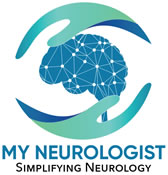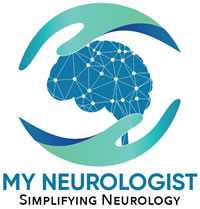Hallucination means false perception or a false sensory experience that is not real. Patient complains of seeing, hearing, feeling, smelling or tasting experience without any trigger or exposure for having such an experience.
What are different types of hallucinations?
Hallucinations are divided into different types based upon the different ways to perceive or sense our environment:
Visual hallucinations: This is when a person visualize something that is not real and does not exist. Patient may complain of seeing objects, people, animals, patterns, shadows, beings, bugs, colors, light flashes, or scenes.
Auditory hallucinations: This is when a person hears a noise that does not exist. It is different from ringing in ears, which is called tinnitus and is usually caused by malfunction of ear apparatus. Auditory hallucinations are caused by a malfunction in brain. A person may hear music, musical tones, whispering, footsteps, someone walking in the attic, clicking or tapping sounds, windows or doors closing or banging, someone talking, or someone giving instructions (command hallucinations), or just ill-defined noises.
Olfactory hallucinations: This is when a person smells an odor that is not there or does not exist. Patient may smell something nasty, something difficult to describe or explain, smoke, or something pleasant like flowers or perfume.
Gustatory hallucinations: This is when a person tastes something that does not exist, or the person has not been exposed to. Common examples reported by patients are tasting metal or blood.
Tactile hallucinations: This is when a person feels a touch, crawl, or someone’s hands on the body feeling that does not exist or has not happened. Patient may also feel movement of internal organs.
What is the significance of hallucinations?
Its main significance is that it is caused by a brain problem. There are variety of conditions that may cause hallucinations.
What are different conditions causing hallucinations?
Following are some conditions associated with hallucinations:
- Psychiatric illness, specifically psychotic disorders. Some examples are psychotic depression, schizophrenia, bipolar disorder.
- Some examples are Dementia with Lewy bodies, Huntington disease, Dementia with behavioral disorder, vascular dementia.
- Drug abuse. Alcohol, cocaine, heroin, PCP, LSD, other hallucinogens like mushrooms, marijuana.
- Parkinson disease and parkinsonian syndromes.
- People frequently visualize their loved ones while grieving. It is considered a benign issue.
- Severe lack of sleep. There are some hallucinations associated with specific sleep disorders, like hypnogogic or hypnopompic hallucinations of narcolepsy.
- Prescription medicines.
- High fever.
- Encephalopathy, this is when brain is indirectly affected from metabolic abnormalities such as liver failure, very high or low sodium.
- Brain infection or tumor.
- Idiopathic intracranial hypertension or pseudotumor cerebri.
What should one do if he or she or a family member is suffering from hallucinations?
Many of us have minor or occasional feeling of hearing a noise or seeing an object or a person, especially in stressful situations or with lack of sleep. If it is significant and not disappearing, start with talking to the primary doctor to find if the cause is an obvious one, e.g., alcoholism or drug abuse. Some hallucinations are relatively benign, like flashes of lights seen by patients with migraine, but still require a proper diagnosis and treatment. In many patients, a psychiatric or a neurological consultation may be required.
What is the treatment of hallucinations?
Treatment of hallucinations depends upon the cause. In patients with a treatable cause (migraine, drug abuse, metabolic abnormalities, fever, etc.), specific treatment for the cause is needed. If no such cause is found and the patient is significantly affected by hallucinations, antipsychotic type of medicines can be helpful. In these patients, psychotherapy is not that effective.
Do patients with hallucinations have insight into their problem?
Some do and many do not. Patients with migraine, seizures, or intracranial hypertension are generally aware of the hallucinations they suffer from and understand its implications. On the other hand, patients with psychotic disorders may not have full insight and usually struggle with acceptance and proper treatment.
Where can I find more information about hallucinations?
American Psychiatric Association
National Institute of Mental Health


Leave a Reply
Your email is safe with us.
You must be logged in to post a comment.